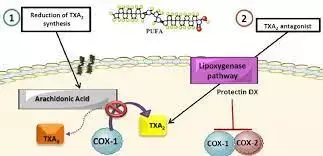- Home
- Medical news & Guidelines
- Anesthesiology
- Cardiology and CTVS
- Critical Care
- Dentistry
- Dermatology
- Diabetes and Endocrinology
- ENT
- Gastroenterology
- Medicine
- Nephrology
- Neurology
- Obstretics-Gynaecology
- Oncology
- Ophthalmology
- Orthopaedics
- Pediatrics-Neonatology
- Psychiatry
- Pulmonology
- Radiology
- Surgery
- Urology
- Laboratory Medicine
- Diet
- Nursing
- Paramedical
- Physiotherapy
- Health news
- Fact Check
- Bone Health Fact Check
- Brain Health Fact Check
- Cancer Related Fact Check
- Child Care Fact Check
- Dental and oral health fact check
- Diabetes and metabolic health fact check
- Diet and Nutrition Fact Check
- Eye and ENT Care Fact Check
- Fitness fact check
- Gut health fact check
- Heart health fact check
- Kidney health fact check
- Medical education fact check
- Men's health fact check
- Respiratory fact check
- Skin and hair care fact check
- Vaccine and Immunization fact check
- Women's health fact check
- AYUSH
- State News
- Andaman and Nicobar Islands
- Andhra Pradesh
- Arunachal Pradesh
- Assam
- Bihar
- Chandigarh
- Chattisgarh
- Dadra and Nagar Haveli
- Daman and Diu
- Delhi
- Goa
- Gujarat
- Haryana
- Himachal Pradesh
- Jammu & Kashmir
- Jharkhand
- Karnataka
- Kerala
- Ladakh
- Lakshadweep
- Madhya Pradesh
- Maharashtra
- Manipur
- Meghalaya
- Mizoram
- Nagaland
- Odisha
- Puducherry
- Punjab
- Rajasthan
- Sikkim
- Tamil Nadu
- Telangana
- Tripura
- Uttar Pradesh
- Uttrakhand
- West Bengal
- Medical Education
- Industry
Intake of arachidonic acid and other fatty acids may increase risk of total hip arthroplasty: Study

Intake of arachidonic acid and other fatty acids may increase the risk of total hip arthroplasty suggests a new study published in the Arthritis Care and Research.
The objective was to determine whether baseline fatty acid intake and erythrocyte omega-3 and omega-6 polyunsaturated fatty acids (PUFAs) can predict risk for total hip arthroplasty (THA) and total knee arthroplasty (TKA) in older women. This was a prospective analysis of 34,990 women in the Women's Health Initiative (WHI). Dietary fatty acids were estimated from food frequency questionnaires. Imputed erythrocyte PUFAs were available in a sub-cohort of 3428 women. Arthroplasty (THA and TKA), used as a surrogate of severe osteoarthritis, was identified via linked Medicare data. Cox proportional hazard models were constructed to estimate risk of arthroplasty.
Results: Risk of THA was associated with higher intake of arachidonic acid, [multivariable hazard ratio (HR) quartile (Q)4 vs Q1: 1.16; 95% CI: 1.01, 1.34; p for linear trend = 0.03] and higher intake of eicosapentaenoic acid + docosahexaenoic acid [(EPA+DHA), HR Q4 vs Q1: 1.20; 95% CI:1.05, 1.39; p for linear trend=0.003]. There was a linear trend (p=0.04) for a higher risk of THA with higher erythrocyte EPA+DHA in BMI-adjusted models; however, there was no significant difference in THA by quartiles of erythrocyte EPA+DHA (p=0.10). Dietary fatty acids and erythrocyte PUFAs were not significantly associated with risk of TKA. Higher baseline intakes of arachidonic acid and EPA+DHA were associated with a modestly higher risk of THA. No association was found between fatty acids and TKA. Further research in populations with direct measures of osteoarthritis severity is needed to better understand the importance of PUFAs in modulating osteoarthritis and arthroplasty risk.
Reference:
Orchard, T., McLaughlin, E., Winschel, T., Shadyab, A., Laddu, D., Vitolins, M., Florina, C. and Jackson, R. (2024), Fatty acid intake and polyunsaturated fatty acid biomarkers and risk of total knee or hip arthroplasty among older women in the Women's Health Initiative. Arthritis Care Res. Accepted Author Manuscript. https://doi.org/10.1002/acr.25319
Dr. Shravani Dali has completed her BDS from Pravara institute of medical sciences, loni. Following which she extensively worked in the healthcare sector for 2+ years. She has been actively involved in writing blogs in field of health and wellness. Currently she is pursuing her Masters of public health-health administration from Tata institute of social sciences. She can be contacted at editorial@medicaldialogues.in.
Dr Kamal Kant Kohli-MBBS, DTCD- a chest specialist with more than 30 years of practice and a flair for writing clinical articles, Dr Kamal Kant Kohli joined Medical Dialogues as a Chief Editor of Medical News. Besides writing articles, as an editor, he proofreads and verifies all the medical content published on Medical Dialogues including those coming from journals, studies,medical conferences,guidelines etc. Email: drkohli@medicaldialogues.in. Contact no. 011-43720751


